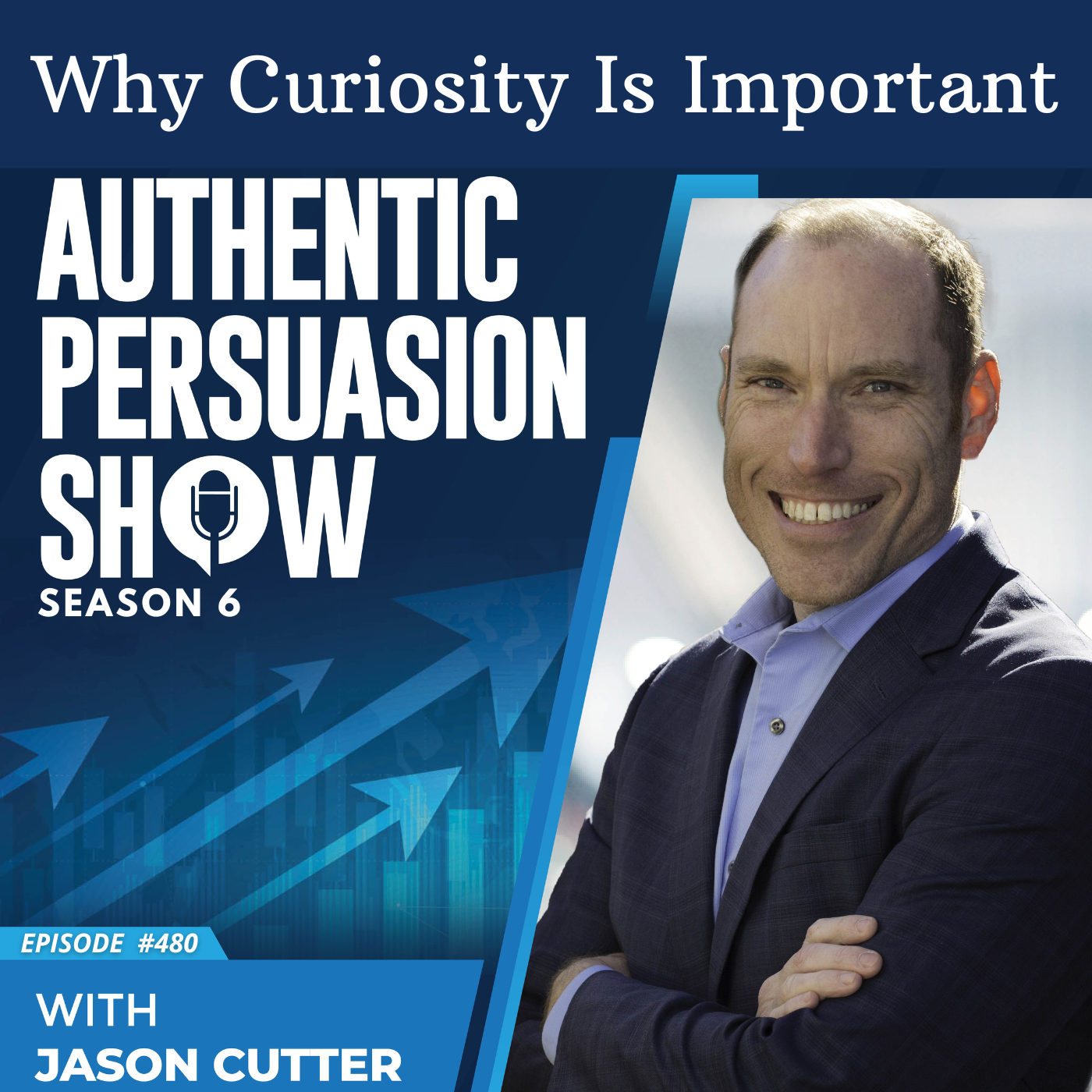Show Notes
It hurts but it’s true: your prospects don’t care about you.
They only care about themselves. About what your product/service will do for them. How their life will be better. How it will require them to make a decision and a change.
They literally don’t care about you, your story, your motivations, your goals, your commission, your mortgage/rent, your…
Sorry – I know that might hurt salespeople’s feelings. But the sooner you realize it, the sooner you will change the focus of your phone calls to the other person and the sooner you will start closing more sales.
Episode 69 – Transcript
As always. Welcome to the sales experience podcast.
So glad you’re here. Hopefully you’re ready to talk about sales this week. The theme is telesales week, so it’s inside sales roles. You’re using the phone, that’s how you’re closing most of your deals. Your transactions are phone related. You’re doing a consultative enrolment.
It’s not just order taking. Order taking can be done online or through customer service, but what you’re doing requires some level of persuasion, some level of digging deep, some level of solving a problem or helping somebody get to the goal they want. In this case here, it’s over the phone.
However, a lot of these things that I talk about is still a pluggable to every other sales interaction and maybe other interactions in life in general. You know, last episode I talked about not sounding like a telemarketer and not sounding like a sales person.
If you take that and put that into your in-person sales roll, don’t sound like a sales person and the kind of person that nobody wants to really interact with because they’re not listening. They’re not getting what you’re talking about.
That could apply in a sales role that gets apply in relationships. You meet somebody at Starbucks, you’re having a conversation, you know, ask them questions, figure out about them, not just talking about yourself and how amazing you are. Not just trying to pitch them hard on whatever it is. Especially if you’re like at a networking event. Just apply these things to everything in life.
Today’s episode, episode 69 is one is about that exact concept. It’s about making it about them and not you. This is super important. I see so many people. Oh my gosh, it drives me absolutely crazy. I see so many people over the phone in person telemarketing, regular sales calls, account executives, SDRs for business to business, to salespeople and agents for business to consumer.
I see it in trade show booths. I see it in person, retail, on car lots, whatever. I see so many people take the classic approach where they just want to talk about themselves. They want to talk about how great they are. They want to talk about how great their company is. They want to talk about how great their product or services, how amazing it is, how everyone loves it.
Here’s the deal, nobody cares. Nobody cares what you do, who you are, how amazing you are, how wonderful your company is, all of the awards your company’s gotten, how great your mom thinks you are like literally nobody cares.
The reason why is everyone only cares about themselves. Now the challenge is is that the sales person, the people I’m talking about and the ones that I’m hoping you’re not going to be like, the ones I want you to shift away from is the salesperson human as well and a person and so they also only care about themselves.
They care about their ego talking about what they’re amazing at, why their company is great and hopefully moving somebody towards the sales so they can get what they want. You have to take this weirdly balanced, selfless view for successful sales, and again, I’m not just talking about order-taking.
If this was order-taking against, somebody could order it online, they could call and get to customer service, right? Like the old days where somebody sees a commercial online for something that you can only see as seen on TV or they get something in the mail and it’s about, you know, calling in and buying. Now that’s just a simple transaction. So I’m not talking about that.
I’m talking about where there’s a sales person, a professional who’s got to help somebody in a consultative way, move them forward, solve problems, address issues, help somebody achieve their goal, whatever that might be.
So in that case there, you have to take this selfless approach. It’s not about you, it’s not about coming out hard with who you are. If in the first like two, three, four minutes of the conversation, most of the time is spent by you talking about you, your company, or your product or service. In my opinion, you’re doing it wrong. It’s just the fundamental truth.
Now if they ask you and say, hey, what do you do? Who are you? You could give them a little bit of information, but fundamentally I would give them a little bit of information and then go back to questions.
I would literally be asking lots of questions in the beginning, and of course you don’t want to sound rude with those questions. You don’t want to make it seem like you’re just doing lots of questions and somebody’s getting the third degree right.
They’re being interrogated by you as a salesperson. Your goal is to find out about them, find out what they need, what their wants are, their issues, their desires, their goals, their dreams, and their challenges.
You know, on one level, depending on what you’re selling, what keeps them up at night, what wakes them up at two o’clock in the morning in a cold sweat on the other side, what is it they’re hoping for? What do they dream about? What do they want? What do they think about day and night and then how can you help them? You’ve got to make it about them.
Do not fall into the trap of coming out of the gate or making most of the conversation about you should be about them. This is so vital. If you can get them talking, the majority of the time you will win. If you can convert that into a sale.
Now you can’t just have a conversation where you’re asking lots of questions and they’re sharing lots of information and then at the end you have this new buddy. You know a lot about them. You know about their kids, you know they grew up in Minnesota, you know that their favourite sports team is this.
You know what kind of car they drive, you know what kind of food they like, like that doesn’t do any good. It’s all about finding out information relative to what you’re selling and then converting that into a solution where you’re tailoring your sales pitch to them, who they are and what they need and how you can solve that.
Do not, and again, I’m going to say this, and I know this sounds like maybe I’m being harsh. Maybe it sounds like I’m making blanket statements across everybody and it wouldn’t apply to everybody, but I’m telling you, fundamentally, in my opinion, in my experience, it applies to everybody who’s in sales.
Don’t make the blanket mistake of just giving the same sales pitch to every single person and thinking that everyone wants your product or service in the same way for the same reason to do the same thing. It’s just not the case.
Everybody has their own thing, their own issues, their own viewpoint, their own experiences with other things like yours in the past or no experience and they need more help, more learning curve. They need more handholding. Always make it about them and do that as early in the process as possible.
Yes, you want to explain what you do, your company, your product or service, how amazing it is, but you want to do that at the right time. Once you know that it’s actually a good fit. It’s super important that you do this. Also because I’ve seen so many people waste so much time on sales calls in trade show booths in person at dealerships or sales, retail locations, whatever it is.
I’ve seen so many people waste so much time as a salesperson. Pitching, explaining to people who aren’t qualified, aren’t the right fit, aren’t interested, aren’t the person who could use it. So you want to make sure you prequalify that person early instead of just jumping in and assuming everyone’s gonna want it.
If you do that, you might get sales. Of course everything works to a certain extent. You might get some sales. In my experience, will you be successful long term? Will you be a professional where you have consistent, expected results and know what you should have based on the number of conversations now that the high level that you want and not at a generally long term profitable, sustainable level that’s going to help you get your own goals.
Remember that it’s so important to make everything about them and not you. You’ve got to fight against that instinct that we all have where we all want to make it about ourselves.
Trust me. I know I’m an only child. Everything is about me, right? Like I know what that’s like and when I tell people that who know me, they’re like, oh, that makes sense. Now I understand why you act like you do cause you’re an only child, but it’s true.
Everybody is all about themselves, what they want and that’s just life. That’s just our human behaviour. That’s our primitive part of our brain that wants us to survive and us to be happy and us to get what we want. When you’re in sales, you literally have to take that part of your brain, set it aside and focus on the other person, what they need, what they want, make it about them.
They should be talking two thirds of the time. In most interactions you should be talking one third of the time. Ask questions, get them talking. Do your discovery, figuring out how you can help them and then help them.
Then move them to the close and don’t make it about you having to talk all the time. Hope that helps. Make sure to subscribe. Find this online everywhere. You could just Google it. The sales experience podcast, and that wraps up this episode.
Always, remember that everything in life has sales and people remember the experience you gave them.
![[E69] Telesales Week: They don’t care about you](https://episodes.castos.com/salesexperiencepodcast/images/TSEP-Cover-Telesales-Week.png)


